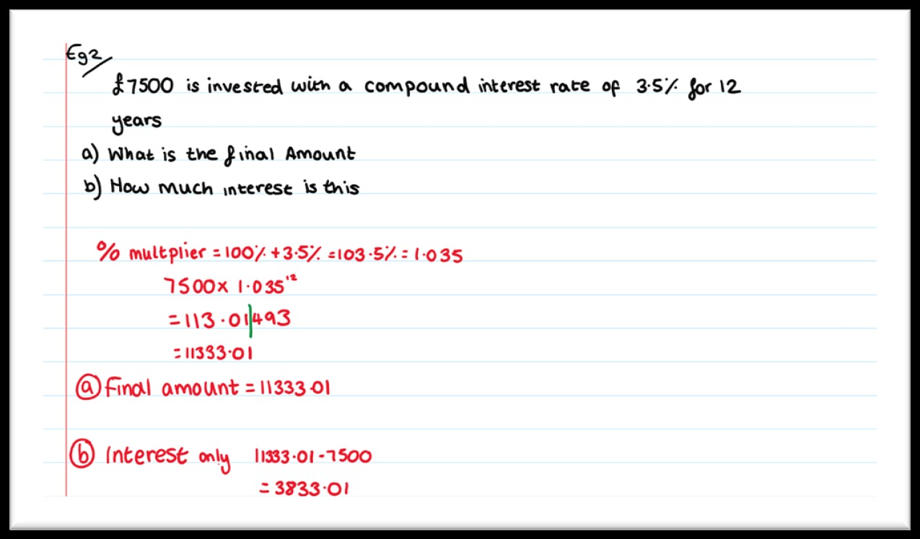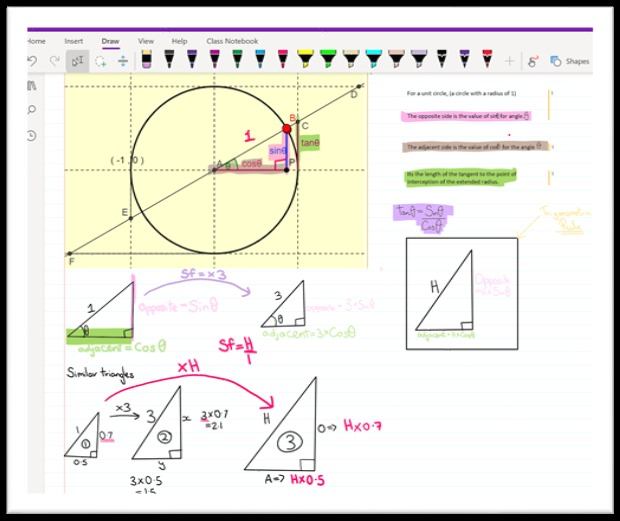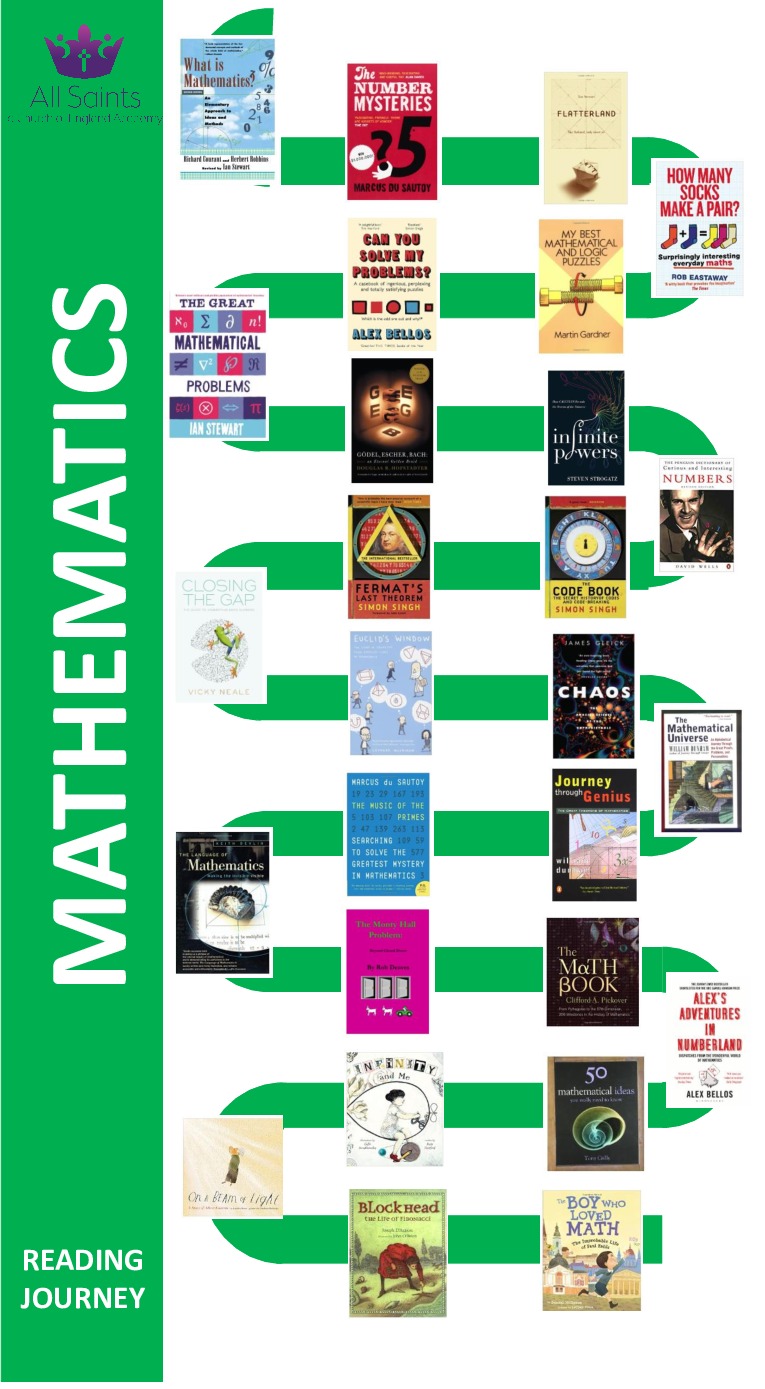- Home
- Curriculum
- Our Courses
- Mathematics
Mathematics
Back“Without mathematics, there’s nothing you can do. Everything around you is mathematics. Everything around you is numbers.” shakuntala devi
Our vision for Maths at All Saints
We believe our role at All Saints Academy is to produce outstanding Mathematicians. This will not only produce students who can pass their GCSE Maths exam but will also instil a love of learning with an ambition to succeed. Through application of our core values of Teamwork, Growth and Excellence, students will strive to become fluent in the fundamentals of mathematics, with students working through problems that increase in complexity over time, developing their conceptual understanding of the subject. Students will develop the ability to recall and apply knowledge rapidly and accurately, learn how to follow lines of enquiry, conjecture relationships and generalisations and develop their ability to create justifications to problems using mathematical proof. Students will understand how to break down a sophisticated problem into a series of easier more manageable steps and that mathematics is not a standalone subject, but a subject where the knowledge they learn in their maths lessons will be applied in other subjects such as science, geography, computing, and many others.
 |
 |
 |
How we will achieve this
Our medium-term plans are set out in to 6 stages which cover both KS3 and GCSE and we include an extra stage 7 for the free-standing Maths qualification. Every class will work on a stage that is appropriate to their ability at the time, with each stage building on the key mathematical concepts from the previous stage. The students will follow a 5-year path that will allow them to achieve their full potential at the end of year 11 giving them the skills needed to continue their mathematical journey beyond their time at All Saints Academy.
Through the application of the concrete, pictorial and abstract approach, students will develop a deep understanding of the topics they are studying by building connections between the concrete, pictorial and abstract representations. This approach helps the students to develop their reasoning and problem-solving skills by encouraging the student to explain their thinking. This approach will include methods such as the use of bar modelling to solve equations and complex ratio problems.
The students class set will be determined initially by their Year 6 standardised score from Primary school and an internal baseline assessment. Teachers will then review each class set after each data capture.
| Class Set | Year 7 | Year 8 | Year 9 | Year 10 | Year 11 |
|---|---|---|---|---|---|
| 1 | Stage 3 | Stage 4/3 | Higher | Higher | Higher |
| 2 | Stage 2 | Stage 3 | Higher | Higher | Higher |
| 3 | Stage 2/1 | Stage 3/2 | Foundation plus | Foundation plus | Foundation plus |
| 4 | Stage 1 | Stage 3/2 | Foundation plus | Foundation plus | Foundation plus |
| 5 | Stage 3/2 | Foundation plus | Foundation plus | Foundation plus | |
| 6 | Stage 2 | Foundation | Foundation | Foundation | |
| 7 | Stage 2 | Foundation | Foundation | Foundation |
Please click the links below to open our learning journeys:
Secondary Scheme of Work: Stage 1
Secondary Scheme of Work Stage 2
Secondary Scheme of Work Stage 3Secondary Scheme of Work Stage 4​Secondary Scheme of Work Stage 5a​Secondary Scheme of Work Stage 5b​Secondary Scheme of Work Stage 6Maths-Pathway-Foundation.pdf
Maths-Pathway-Foundation-Plus.pdf
Maths-Pathway-Higher-Scheme-of-work.pdf
GCSE Course
GCSE Maths (9-1) - J560 (from 2015) - OCR
How we will assess Maths
Throughout the year the students will encounter several types of assessment. On a daily basis the class teacher will implement a number of different formative assessment strategies to help determine the level of understanding of each student. Listed below are some of the types of formative assessment we use in the mathematics department.
Formative Assessments :
- Live marking of work by their teacher
- Peer marking of work by another student
- Independently assessed homework using DrFrost Maths
- Dr Frost Maths to monitors students work on a question-by-question basis
- Think pair share
The students will also sit 3 summative assessments throughout the year to help determine what the students remember well and what needs extra work. From these formal assessments the students will be given a ‘Smith’s Report’ that is independent to each student, this report shows each student what they have performed well on and what areas they need to improve. A question level analysis is completed from these reports that is used by each class teacher to create the starter or retrieval questions that the students will start each lesson with, it will also be used by the class teacher when creating one of the tasks that each student will be allocated as part of their homework each week.
Summative Assessment
Students will sit 3 formal tests at the end of each term that will assess the students understanding in maths. Students will be given topic lists of the work that will be reviewed in these assessments, homework will also be set on Dr Frost maths based on these topics.
What is the impact of our work?
We are a high-performing department, and our results are consistently amongst the strongest in the county. We believe the culture that we create in the department, which is based around our core values, will result in producing outstanding mathematicians and we firmly believe that this will then translate into strong GCSE grades. The ethos that we have built in the department is that every child can achieve well in the subject. Students in set 1 of Year 11 follow the Additional Maths syllabus which helps them prepare well for AS and A level maths as well as their final GCSE examination.
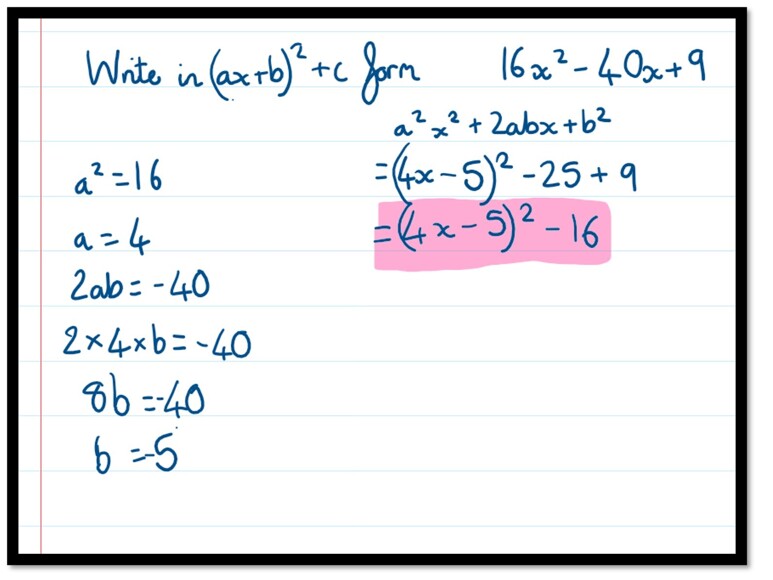
CULTURAL CAPITAL
Students have the opportunity to engage in a range of extracurricular maths activities, these include the junior and intermediate maths team challenge, maths mentoring, cypher club and additional maths GCSE.
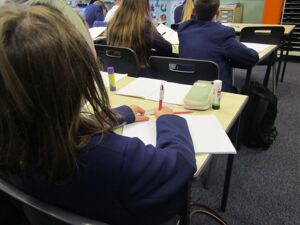 |
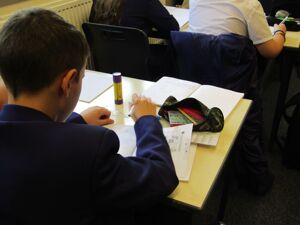 |
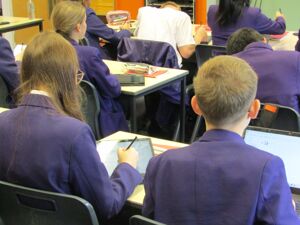 |
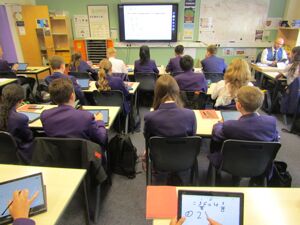 |
Maths Prefects
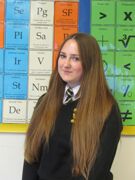 I’m Esme and I have been chosen for All Saints Senior Maths prefect this year. When becoming a prefect, I knew what high aims I had for myself and how I wanted to improve and develop my leadership skills to help the maths department strive and become a subject in which people are more comfortable. My objective is to show that maths can be more than just confusing equations and long numbers, but rather a chance to use all your intellectual ability to help you problem-solve and reach a final answer. Maths has always been my favourite subject and I want to spread my passion for it towards the rest of the school so we can collectively enjoy and show the importance of maths.
I’m Esme and I have been chosen for All Saints Senior Maths prefect this year. When becoming a prefect, I knew what high aims I had for myself and how I wanted to improve and develop my leadership skills to help the maths department strive and become a subject in which people are more comfortable. My objective is to show that maths can be more than just confusing equations and long numbers, but rather a chance to use all your intellectual ability to help you problem-solve and reach a final answer. Maths has always been my favourite subject and I want to spread my passion for it towards the rest of the school so we can collectively enjoy and show the importance of maths.
I know that many people can find maths to be one of the more difficult and puzzling subjects but in our school, we want to help everyone we can to receive the best grades for their future. In the maths department, there are different opportunities to receive extra support such as math period 0/6s or maths mentors which I think is an amazing chance to help you have more confidence.
In my final year, I would like to make maths an enjoyable topic for everyone across the academy.
Deputy Prefect
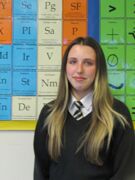
Hi, I'm Holly, the maths deputy prefect at our school. As part of my role, I would like to appeal the subject to all students by changing the perspective so the lessons excite students. To achieve this, I will be advertising the opportunities for support (maths mentors) as well as helping the students with the subject myself. I would also like to bring attention maths events we hold throughout the school year. Hopefully, before I leave the school I will have accomplished these changes and made maths seem enjoyable to all pupils.
How you can help your child
Knowledge organisers are all available for the students in their class team.


